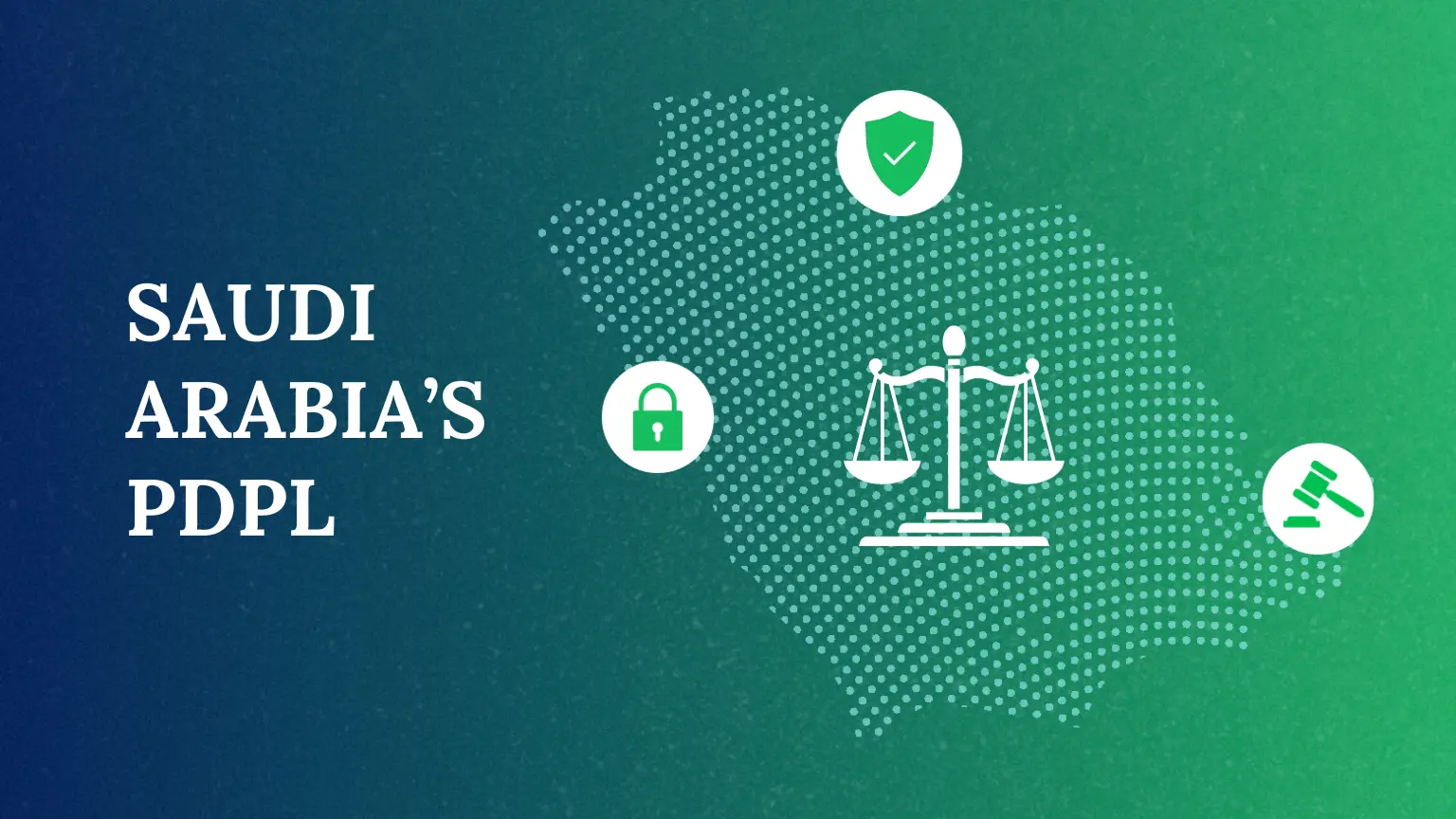You might be familiar with the saying, “Data is the new oil.”
Nowadays, data serves as the driving force behind numerous businesses.
Personalized customer experiences, automated marketing communications, and data-driven insights all rely on the quality and amount of information available.
Undoubtedly, the age of computerized progressions significantly benefited the two individuals and organizations.
In any case, the issue of why is data privacy important has ascended to prominence because of the rising collection and storage of sensitive and personal data.
According to the numbers, 90% of Americans consider online privacy a critical concern.
Nevertheless, less than 25% of smartphone users believe they lack control over the utilization of their data on the internet.
Consequently, for brands to gain their confidence, it is essential to safeguard data against unauthorized access, misuse, and breaches.
One company could have the private information of millions of customers.
They must keep this information safe to protect the customers and their reputation.
But data privacy isn’t only about businesses worrying about data breaches.
For you as a person, data privacy matters a lot. If you understand it better, you can do more to protect yourself from many risks.
In this article, we’ll explore the data privacy concept and explore why is data privacy important and why it holds such significant importance for consumers and businesses.
What is Data Privacy?
Over the past twenty years, the utilization of the internet has surged. Websites, social media platforms, software, and various online tools collect and retain users’ personally identifiable information and other significant data. This accumulation of data is aimed at providing exceptional services to consumers.
This data includes details like a person’s name, contact info, age, address, and online and offline activities. Just as you value keeping aspects of your personal life private, many internet users also want control over the data being amassed from them.
It’s common for apps and online platforms to collect and use our information in ways we might not expect, which can compromise our privacy more than we realize.
Moreover, some of these services don’t take enough precautions with the data they gather, putting us at risk of a data breach that invades our privacy.
And that’s where the idea of data privacy becomes essential.
Data privacy is the idea that people have the authority to manage how their personal information is collected, handled, and disclosed by the companies that can access it.
In the modern era, the notion of data privacy primarily revolves around the management of sensitive personal details.
It is about how data should be treated based on its significance. For instance, you might not have a problem sharing your name when you first meet someone new, but there are other details you’d hold back, at least until you know them better.
For businesses, safeguarding data privacy extends beyond the personal information of their staff and customers.
It also covers the data crucial for the company’s functioning, such as exclusive research and development data or financial records illustrating how the company manages its funds and makes investments.
Why is Data Privacy important?
In today’s business world, data is essential. Think about how you get personalized experiences and automated marketing messages – all from the information companies collect.
But there is a catch: as companies gather more data, they need to ensure it’s kept safe and private. This matters a lot to consumers, which companies need to take seriously.
The information you disclose online to access particular services is crucial. Giving someone your name, birth date, social security number, and other personal information is like giving them a magic key that allows them to become you.
The issue is that if criminals obtain this key, they may impersonate you, deceive you, or even cause harm to you. Because of this, it’s essential to keep your personal information private and secure.
Let’s look at some significant reasons why Data Privacy is important.
Fostering Trust and Assurance: Data privacy is pivotal in l role in establishing trust among individuals and businesses. When businesses prioritize data privacy and exhibit dedication to safeguarding personal data, they cultivate a reputation for dependability and honesty. Consequently, this develops customer confidence, strengthening bonds and long-term loyalty.
Safeguarding Personal Information: Data privacy ensures the security of individuals’ data from unauthorized access, protecting sensitive details like social security numbers, financial records, and health info. By retaining authority over their data, individuals can lessen the risks tied to identity theft, fraudulent activities, and other malicious affairs.
Preserving Individual Autonomy: Data privacy empowers individuals to retain authority over personal data. It empowers them to dictate how their data is collected, used, and shared. By upholding individual autonomy, data privacy guarantees that personal information isn’t exploited or misused without proper consent.
Meeting Legal and Regulatory Requirements: Diverse laws and regulations related to data protection, such as the General Data Protection Regulation (GDPR) and the California Consumer Privacy Act (CCPA), mandate businesses to adopt measures to safeguard individuals’ data privacy rights. Adhering to these regulations helps companies to evade legal consequences, substantial penalties, and harm to their goodwill in the market.
Data as a catalyst for innovation: Data privacy serves protective purposes and fuels innovation. When individuals trust that their data will be managed responsibly, they willingly share information. This data, in turn, can be harnessed to extract valuable insights, facilitate personalized experiences, and propel research and development across various sectors.
Adopting Ethical Data Practices: Respecting data privacy is an ethical duty. Businesses handling data must get their customers’ permission before collecting, using, and sharing the data.
By complying with ethical data practices, businesses are committed to respecting individuals’ rights and propagating transparency.
Now, let’s look separately at why Data Privacy is important for Businesses and Individuals
- Why is Data Privacy important for Individuals?
Privacy laws worldwide are designed to empower individuals by granting them control over their data.
These regulations empower customers to oversee the processing and usage of their data. This encompasses comprehending who accesses the data, the intended purpose of its usage, and the methods employed in its use.
Companies that gather personal data must abide by these rules, answer user questions, and lawfully maintain data.
- Why is Data Privacy Important for Businesses?
Companies cannot operate without processing personal data to some extent.
However, businesses should handle personal data transparently and follow privacy regulations to remain compliant.
They must take responsibility for the personal data they process and adhere to privacy principles.
Failing to do so can result in severe consequences, including substantial regulatory fines, loss of customer trust, decreased investor appeal, and data breaches.
Nonetheless, privacy laws, such as GDPR, have pushed some companies to transform digitally, giving privacy-forward businesses a competitive advantage.
This advantage extends from meeting customer expectations to reaping benefits like improved data quality, enhanced customer experience, heightened investor appeal, and a stronger brand image.
According to a 2014 report by Forbes, 46% of organizations experienced harm to their reputation and brand value due to a privacy breach.
As the world witnesses new data protection regulations in various jurisdictions, the advantages of adhering to data privacy laws are becoming increasingly evident.
Regulations are increasing to emphasize the importance of data privacy compliance. This compliance protects companies’ reputations and builds trust with customers and business partners.
Embracing data privacy and best practices is now essential for companies looking to navigate the evolving landscape of data protection and maintain a positive brand image in the eyes of their stakeholders.
Data privacy protection is crucial as it can influence one’s rights and freedoms. The collection of vast amounts of data by companies and governments gives them immense control over individuals’ lives.
Our actions may be influenced by data collected about us, making possible targeted advertising and impacting our chances for jobs, loans, and other options.
It’s concerning that many individuals have limited control over the data collected and its usage. Autonomy is at stake when privacy isn’t respected.
Also, protecting personal data is a must since it’s vital to human rights. Having control over information about oneself is crucial. Without proper privacy, one can fall victim to constant monitoring, which leads to a loss of freedom.
Still, trying to figure out the significance of data privacy? Take into account these findings from Pew Research:
- 57% of adults in the United States who have personally encountered a data breach were more inclined to avoid using products and services due to their concerns about their data privacy.
- Adults in the U.S. reported discontinuing the use of websites (21%), electronic devices (11%), and social media platforms (10%) due to concerns regarding the extent of personal information being requested.
- The rationales provided by U.S. adults for refraining from using these products or services encompassed reluctance to share personal information (15%), lack of confidence in service providers (9%), and feelings of being under surveillance (8%). Smaller groups pointed to discomfort with providing payment information, connections with third parties, and unsolicited messages (spam).
It’s evident from the above discussion that in the absence of data privacy, consumers are hesitant to establish lasting connections with businesses.
To gain trust and loyalty, companies must exhibit responsible and respectful behavior in managing consumer data.
Conclusion
Protecting data privacy is an essential concern for both businesses and individuals. Thus, it is vital to guarantee the confidentiality of personal and sensitive data while adhering to regulations related to personal information.
If sensitive materials such as financial records, medical details, and other personal data of consumers or users are acquired by unauthorized parties, it can give rise to a troublesome situation.
When personal information lacks proper access control, individuals become vulnerable to fraud and identity theft.
Furthermore, a data security breach on a governmental scale could jeopardize the safety of entire nations.
Similarly, if such a breach occurs within your organization, it might make your proprietary information accessible to a competitor.
This is where the significance of data protection regulations and data privacy becomes evident. Cybersecurity is essential because an increasingly significant portion of our daily lives and activities are online.


